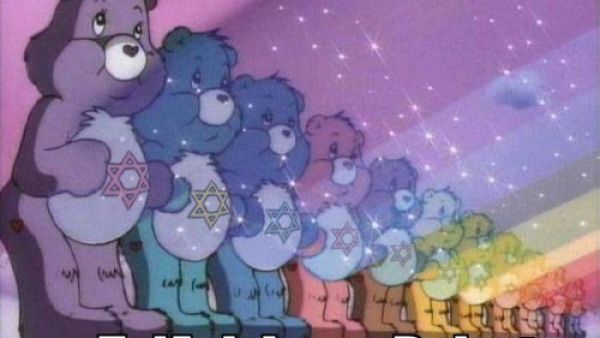- After Beirut.com objected to being included in a post promoting Israeli tourism, hashtag 'Tel Aviv loves Beirut' was launched
- The trend ignores the recent history of Israeli violence against Lebanese civilians
- Israel's defense minister this month threatened to attack the Lebanese army
- 'Tel Aviv loves Beirut' is another Israeli soundbite which erases its abuses
“Tel Aviv loves Beirut” has been trending over the weekend as Israelis pat themselves on the back for their tolerance and ability to “turn the other cheek.”
But their self-congratulating misses the point.
When Forbes named both Beirut and Tel Aviv among the “trending international destinations” this season, the Twitter account for “Beirut.com” tweeted a tongue-in-cheek reaction.
Can we be excluded from this narrative? https://t.co/DDNTxQVbpD
— Beirut.com (@BeirutCityGuide) October 27, 2017
An Israeli investment banker, Marc Leibowitz, had tagged the independent company in his tweet about the travel list and Beirut.com replied asking not to be associated “as a website.”
We meant us as a website we're not the representatives of the city of Beirut. #shusar
— Beirut.com (@BeirutCityGuide) October 28, 2017
Missing the context, Israelis took that tweet to mean the Lebanese capital wanted to be removed from Forbes’ selection of hot tourist sites, simply because Tel Aviv was included.
In response, the hashtag “Tel Aviv loves Beirut” was launched in what usually high-brow Israeli news site Haaretz described “an outpouring of unrequited love.”
Because #TelAvivLovesBeirut@BeirutCityGuide pic.twitter.com/laa3LPqffY
— StandWithUs (@StandWithUs) October 27, 2017
ICYMI. @BeirutCityGuide doesn't want to be included with @TelAviv in a tourism article. Let them know #TelAvivLovesBeirut! pic.twitter.com/V0NxKOXHwd
— The Mossad (@TheMossadIL) October 28, 2017
#TelAvivLovesBeirut pic.twitter.com/BYDXz5fQYN
— MBK (@b_krukov) October 27, 2017
However, Lebanon-based writer Alexandra Talty, who has contributed to Forbes, used the tag to point out its flaws.
To frame the Lebanese as “childish” for not wanting their capital to be included alongside Tel Aviv, and to claim the moral high ground for “showing love” through a hashtag, she said, is an “erasure” of politics and history.
Saying that #TelAvivLovesBeirut bc Israelis don't mind being included in a @forbes travel list with Leb is a trite erasure of politics.
— Alexandra Talty (@taltywrites) October 28, 2017
Lebanon and Israel remain formally in a state of war, following the 2006 conflict with Hezbollah that killed around 1,200 Lebanese, mostly civilians. The Israeli ground invasion of southern Lebanon devastated infrastructure and displaced more than a million.
That was the third such violation since 1978.
If #TelAvivLovesBeirut... why not ask Israeli politicians to stop threatening to bomb Lebanon? This happens daily.
— Alexandra Talty (@taltywrites) October 28, 2017
Israelis might “love Beirut,” but official actions do little to reflect that apparent affection.
A constant stream of Israeli rhetoric threatens a destructive war - and not just against Hezbollah. Earlier this month, Israel’s defense minister said that the U.S.-backed Lebanese army would also be a target in any future war against the Shia militant group.
“If Lebanon has Hezbollah as part of its government, and it’s harboring thousands and thousands of missiles in its homes, then Lebanon is game,” Israeli Education Minister Naftali Bennett said last week.
“Its infrastructure, international airport and government facilities – it’s all game.
In September, Israel carried out its largest military drills in two decades on the northern border, apparently in preparation for renewed conflict.
But the hashtag #TelAvivLovesBeirut is childish itself, Israel constantly threatens war with Lebanon - let's not ignore what is going on
— yo (@thedjazzy) October 28, 2017
- Not everybody likes Banksy’s hotel in the West Bank
- Why many activists aren't feeling the pride at this year's Tel Aviv gay pride festival
The hashtag forms part of a wider issue.
Israel is constantly trying to frame itself internationally as an innocent, welcoming and tolerant state unjustly hated by its hostile neighbors.
Apparently light-hearted, English-language campaigns like these conveniently ignore the fact that Israel’s tourist industry benefits from its illegal occupation of Palestinian land. That tourism, like everyday life, in the West Bank is being suffocated under Israeli military control.
Instead, organizations like Beirut.com wanting to distance themselves from Israel’s self-promotion are branded petty.
Along with "the only democracy in the Middle East" and "an LGBT-friendly oasis in the region." "Tel Aviv loves Beirut" is another meaningless soundbite designed to market Israel while ignoring its abuses.
Why don't we all just INCLUDE ourselves in a NARRATIVE of LOVE...? #TelAvivLovesBeirut
— Tel Aviv (@TelAviv) October 28, 2017







